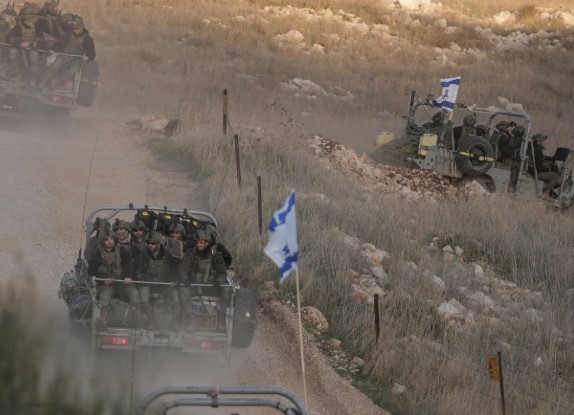The Golan Heights is a strategic area in the south-western part of Syria. Israel has controlled the region since the 1967 Six-Day War. During the war, Israel captured about two-thirds of the Golan Heights from Syria. The region is crucial due to its military and water resources. It also overlooks northern Israel and southern Syria.
Israel’s Actions in the Golan Heights
Recently, Israel has made headlines for its plans to expand its settlement in the Golan Heights. The Israeli government has announced a plan to double the population of Israeli settlements in the area. The decision has sparked strong reactions from multiple countries. Turkey condemned the move as an attempt to “expand its borders” through occupation.
Turkey’s Foreign Ministry issued a statement expressing grave concern over Israel’s actions. They described Israel’s actions as a clear violation of international law. Turkey argued that the move would destabilize the region. This concern is especially relevant after the fall of the Syrian regime under Bashar al-Assad. Turkey also noted Israel’s recent military maneuvers in the Golan Heights. They pointed out that these actions violated the 1974 disengagement agreement between Israel and Syria. The agreement had established a demilitarized buffer zone in the area.
Expansion of Israeli Military and Settlements in Golan Heights
In addition to the settlement expansion, Israel has also increased its military presence in the Golan Heights. Last week, Israel moved troops and military armor into a demilitarized zone. The zone was intended to be a buffer between Israel and Syria. This action raised alarms about the future of peace in the region. It also raised concerns about Israel’s intentions to solidify its control over the Golan Heights.
Israel has defended its actions, stating the increased military positions are a “temporary measure.” They claim this is necessary to maintain security in the area. However, recent statements have contradicted this claim. Israeli officials have indicated that the military presence will remain through the winter. This suggests a more long-term strategy. The move has led to further tensions in the region. Many countries view it as an attempt to permanently control the Golan Heights.
Israel’s plans to expand its settlements in the Golan Heights have also raised concerns. The area already has a significant Israeli population, with around 50,000 people living there. This population includes both Jewish settlers and members of the Druze community, an Arabic-speaking ethnic minority. Israel announced plans to increase the population of settlements in the Golan Heights. This is seen as a step toward formalizing Israeli control over the region. Israel declared the Golan Heights as part of its territory in 1981. However, most countries, including Syria, do not recognize Israel’s sovereignty over the area. The international community largely considers the Golan Heights as occupied Syrian land.
International Reactions to Israel’s Actions
Israel’s actions in the Golan Heights have sparked reactions from several countries, including Germany, Egypt, and the United Kingdom. One of Israel’s closest European allies, Germany, vehemently denounced the settlement expansion plan and urged Israel to drop it. The German foreign ministry emphasized that under international law, the Golan Heights belongs to Syria. Israel is considered an occupying power in the region. Germany’s stance reflects growing concerns within the international community. These concerns are about Israel’s behavior in the region. The international community worries about the potential impact on peace efforts.
Egypt also expressed its rejection of Israel’s settlement expansion, describing it as a violation of Syria’s sovereignty and territorial integrity. The Egyptian government stressed that Israel’s actions undermine efforts to bring stability to the region. This is especially concerning after the fall of the Assad regime in Syria.
The United Kingdom also joined the growing chorus of concern. The UK-based Syrian Observatory for Human Rights reported significant airstrikes by Israel on military sites in Syria. These strikes included missile warehouses along Syria’s coast. These strikes are considered some of the most violent since Israel began its military operations in Syria in 2012. The UK and other countries have urged all parties involved in the Syrian conflict to respect Syria’s territorial integrity. They have also called for avoiding actions that could further destabilize the region.
Israel’s strikes on Syrian military sites are part of a broader campaign. The goal is to prevent weapons, including chemical weapons, from falling into the wrong hands. Israel views certain groups and forces in Syria as a threat. Israel has repeatedly stated it is acting in self-defense. The aim is to protect its citizens from hostile forces in Syria.
However, the international community is divided over Israel’s actions in Syria. Israel justifies its military interventions as necessary for security. However, many countries, including those in the Arab world, view these actions as violations of international law and Syria’s sovereignty.
As tensions rise over the situation in the Golan Heights, the international community continues to call for restraint and dialogue. The region remains a flashpoint for conflict. Israel’s actions will likely continue to be scrutinized by the global community in the coming weeks.

